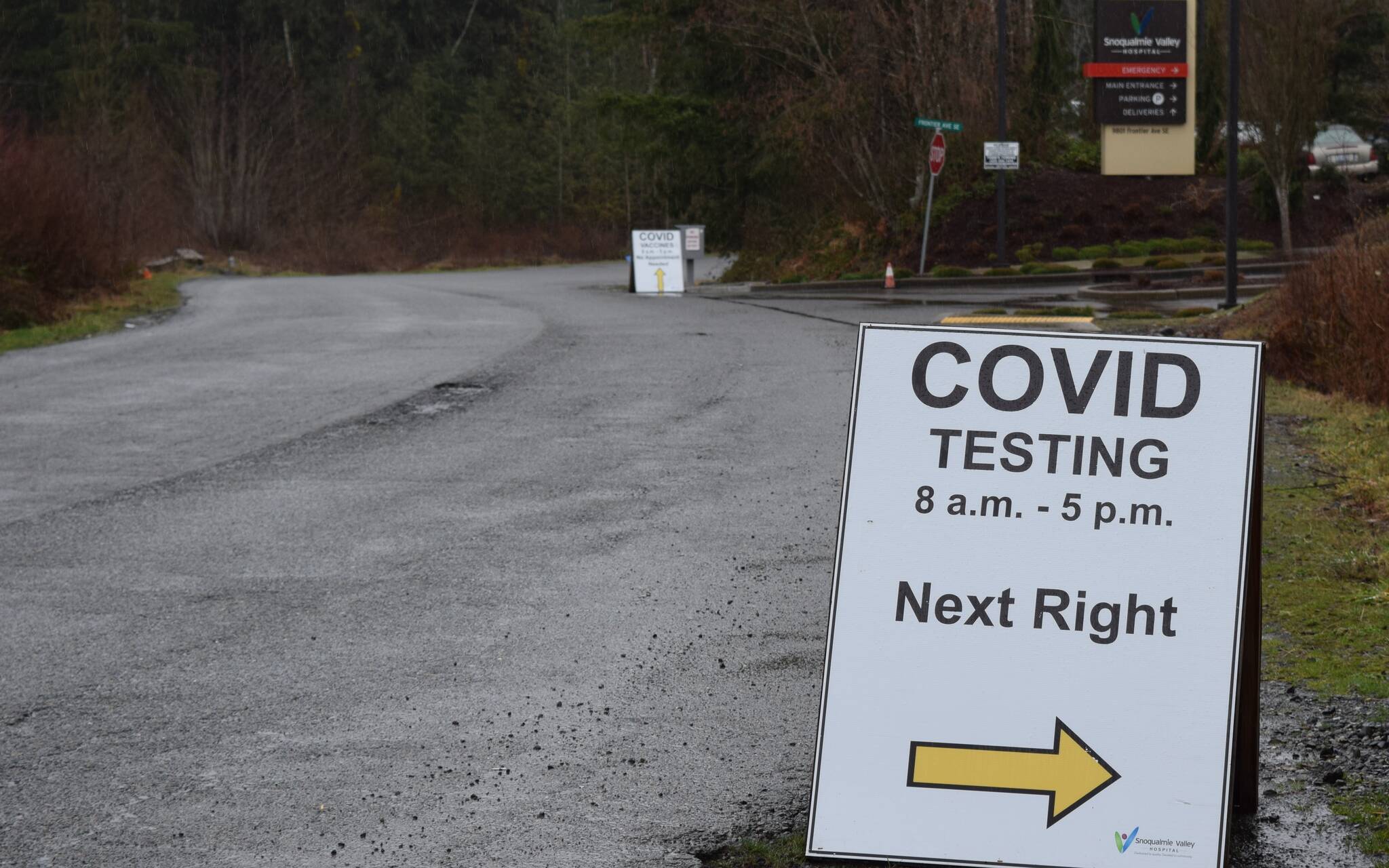Lowering COVID-19 case numbers and the sunsetting of health precautions this month could bring relief to local businesses and schools, but health officials say future spikes in positive cases are still possible.
Both King County’s vaccination identification requirements and its mask mandate will be lifted March 12 as case rates across the county and in Snoqualmie Valley have reached lows not seen since early December.
Their lifting is timely, as the beginning of March marked the two-year anniversary of King County Executive Dow Constantine issuing an emergency proclamation for COVID-19.
“We’re returning back to pre-Omicron levels,” said Dr. Jason Rubin, Snoqualmie Valley Hospital’s lead COVID physician. “It’s tempting to think the pandemic may be winding down, but I’ve learned not to bet against COVID.”
Still, after two years of health restrictions and pandemic challenges, businesses are hopeful for some resemblance of normalcy, said Kelly Coughlin, the executive director of the SnoValley Chamber of Commerce.
“Some of these businesses have gone through hell,” she said.
Coughlin said she hopes easing those precautions, along with lower case numbers, could help businesses owners who have faced challenges, and at times harassment, when complying with mandates.
Sales are down 30% to 40% for Valley businesses since the vaccine verification went into effect. Coughlin said that drop was at least partially caused by a decrease in tourists, who would normally stop in town, but didn’t because of the county’s vaccine regulations.
“I think people from Snohomish [County], if they went skiing, they didn’t stop here for food,” she said. “It’s been amazing to see that.”
The county introduced its vaccine verification in September 2021, during the Delta wave, in an effort to curb the disease’s spread during potential fall and winter surges. By January, the Omicron wave began causing record case numbers.
Between early and mid-January, Snoqualmie Valley Hospital was testing between 100 and 140 patients each day and getting about 30 positives. Today, those numbers have dropped significantly, with the hospital testing roughly 40 patients a day, with about two positives.
Dr. Rubin said COVID seems to surge every 3 to 4 months, and he’ll be watching to see what happens with cases in April. He said he thinks a spike could come after the mask mandate is lifted, but it won’t be immediate, nor will it be as prolific as the Omicron wave.
“I expect spikes will continue,” he said. “Demasking will accelerate them.”
At a Feb. 3 school board meeting, Snoqualmie Valley School District Superintendent Lance Gibbon said teachers and parents were beginning to feel pandemic fatigue over masking.
In recent months, the SVSD board has received frequent, and at times hostile, comments at their meetings over residents’ frustrations with the state’s mask policy – a policy school board members had no authority to change and was tied to school funding.
“We shared with [the state superintendent’s office] that we have our boards and superintendents that are kind of being put out on the frontlines,” Gibbon said at the Feb. 3 meeting. “And they’re the messengers.”
The district will continue to follow public health guidance, Gibbon said, but won’t add to it. In a Feb. 17 letter to district families, he emphasized respect regardless of the masking decision.
“As a community, we’ve been through a lot together,” he wrote. “We need to stay together in this for our children.”
SVSD reported 13 cases within the last 14 days, as of March 4, according to its online dashboard. That represents less than 0.25% of the student and staff population and is a large drop from the 156 cases in the last 14 days reported on Feb. 18.
When asked whether teachers and staff were in favor of lifting mask mandates, Nate Ziemkowski, a Snoqualmie Elementary School teacher and co-president of the Snoqualmie Valley Education Association (SVEA) labor union, said they continue to support COVID-19 precautions that make sense for current hospitalization rates.
“Throughout this pandemic we’ve been committed to supporting public health experts’ advice. That continues to be the case,” the SVEA said in a statement. “Some students and educators will have to, or choose to, wear masks and we need to ensure they are free to do so in their buildings without facing discrimination or harassment. The same is true for those students and educators choosing not to wear a mask.”
King County is classified as “low COVID-19 community level” by the Centers for Disease Control. According to King County’s COVID-19 dashboard, as of March 4, the county was averaging 291 news cases each day over the last week. That is a 29% drop in cases from the prior week.
Over the last week, the county is also seeing 10 daily hospitalizations and 5 daily deaths on average, a 16% and 39% decrease respectively over the prior week,
The Snoqualmie, North Bend, Skykomish Health Reporting Area has also seen similar drops over the last week. The HRA is averaging 5 daily cases as of March 4, a 40% drop over the last week, according to the county dashboard.
King County’s department of health in a news release said it’s still “very reasonable” to continue to wear a mask if you are at increased risk of infection or are in contact with someone who is.
Rapid tests on Snoqualmie Ridge
The Snoqualmie Ridge Urgent Care, located at 5020 SE Kinsey St. in Snoqualmie, is now providing COVID rapid antigen tests for those with symptoms.
No appointment is required, but the hospital is asking patients to call before arrival. The tests take about 15 minutes to show results.
If a patient is symptomatic and tests negative, they will be encouraged to get a PCR test at the hospital’s drive through testing site.


